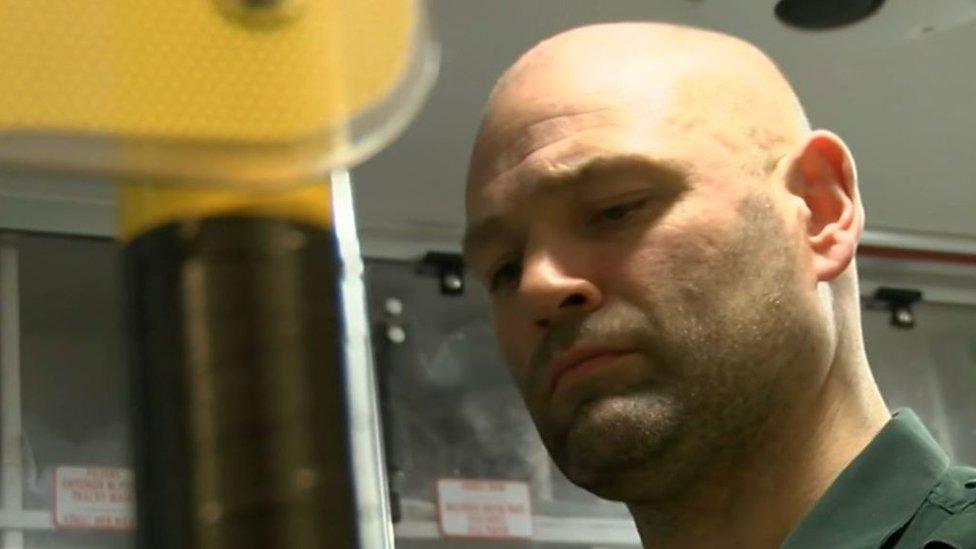How a veteran's retreat is helping Covid keyworkers with PTSD
- Published
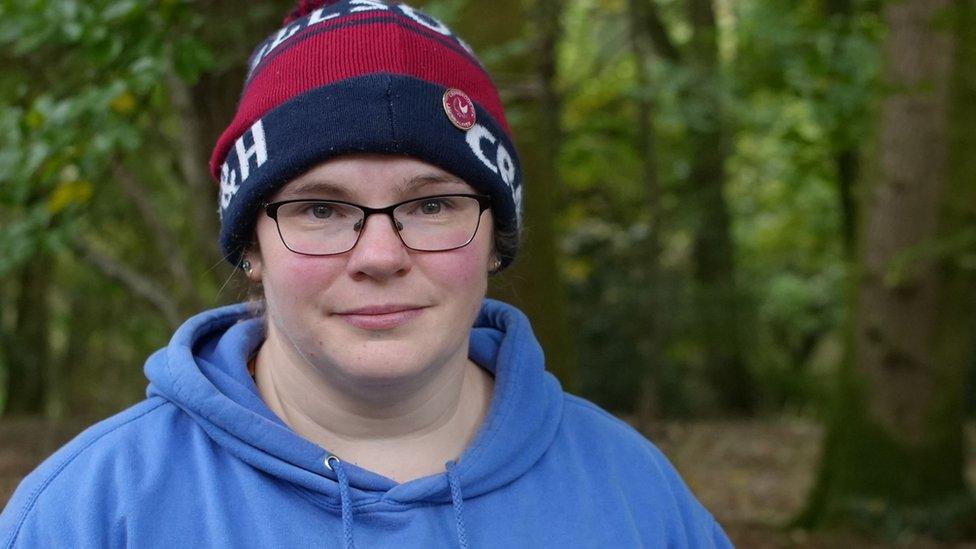
Jo Furlong would finish every working day distraught and unable to sleep
NHS workers affected by the pandemic have been taking part in a course designed to help with post-traumatic stress disorder (PTSD).
The woodland workshop was created by former marine Nick Goldsmith.
Among those taking part was 999 ambulance call-handler Jo Furlong, who struggled with the demands of her job at the height of Covid.
She said: "It was awful - listening to hundreds of people in a week beg for help because they can't breathe."
A new BBC documentary series, We are England, followed the group to Pensford in north east Somerset where they slept out under the stars and took part in bush-craft activities with Mr Goldsmith, while talking about the problems they had faced during the pandemic.
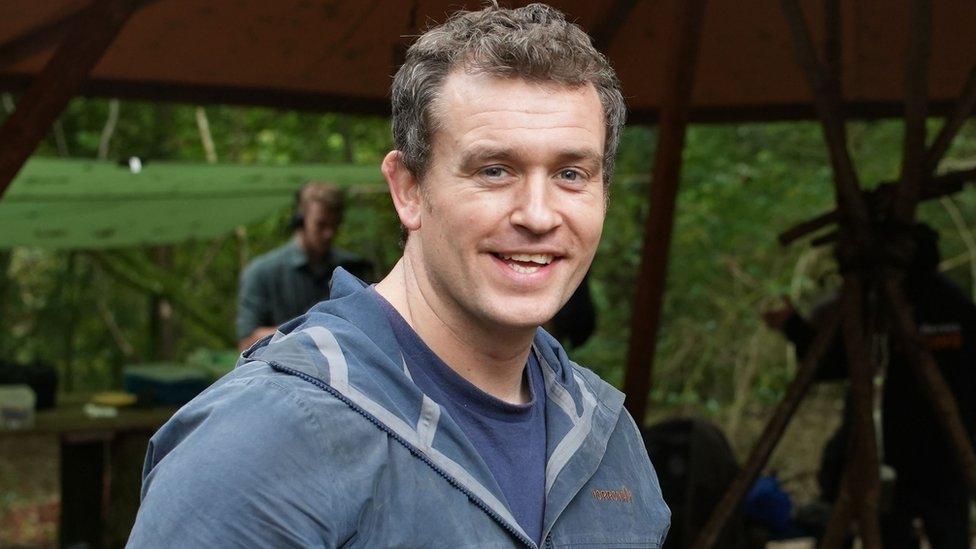
Ex-marine Nick Goldsmith said people would start the courses feeling alone but "leave smiling"
Mr Goldsmith designed the Woodland Warrior Programme in 2016 after he left the Royal Marine Commandos in 2014 with complex PTSD.
A 2016 study , externalfound that 17 per cent of veterans who served in combat roles in Iraq and Afghanistan had the condition.
He said: "In the marines it was seen as a weakness, that there's something wrong with you and you can't do the job in the same way.
"The only place I felt solace, peace or genuine calmness for my soul was in the woods.
"It's going back to my childhood you could say but it's more than that."
'Extraordinary pressure'
Having seen the fallout from the pandemic on keyworkers, particularly frontline medical staff, Mr Goldsmith opened the programme to them too.
For Ms Furlong, the extraordinary pressure of working through the pandemic brought back PTSD that had been buried for years.
She endured 18 months in which she said her mental wellbeing, her quality of life and her ability to be a good mother all took a battering.
She said: "Working in the control room, we are like the forgotten side.
"Everything was worse the second and third lockdowns- it was much, much busier and the one over Christmas was insane.
"The call volumes - we had a room full of staff all taking calls but you still have five-10 people on hold to 999.
"These people are in the same category as people who are having heart attacks and strokes, so the sickest of people."
'Distressing'
She found the daily experience of fending off desperate callers a particularly distressing experience; she wanted to help them but could only offer calm words of reassurance.
She would finish every working day distraught and unable to sleep.
Also on the course was junior doctor Kiera Ajagun-Roberts, one of the 45 per cent of doctors, external who has suffered anxiety, depression, stress or other mental health conditions during the pandemic.
She said: "When I first started I was doing video calls with really mentally unwell adults and children.
"It was a tough place to start.
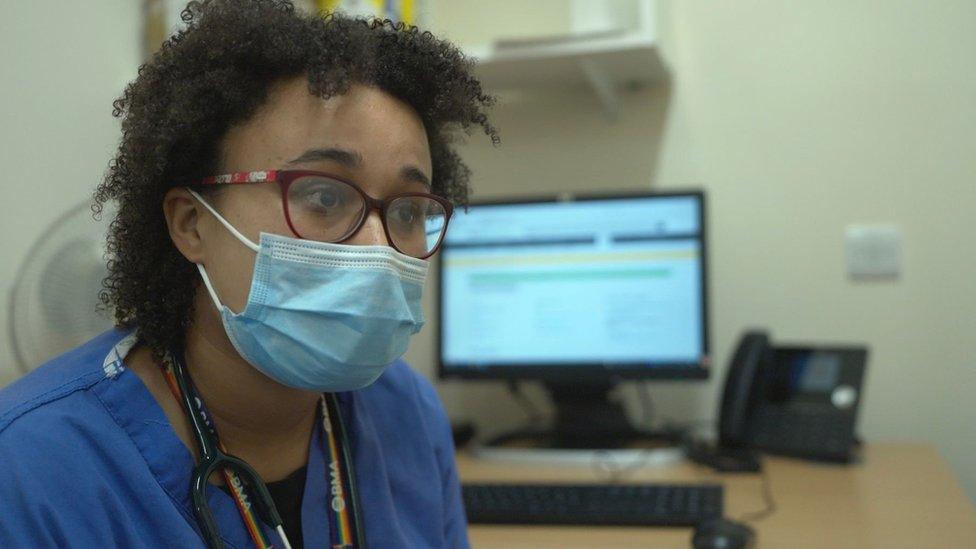
Kiera Ajagun-Roberts, a junior doctor, was signed off work and contemplated suicide before the sessions
"Doctors aren't supposed to have mental health problems, they are supposed to be the ones that do the fixing.
"And I think it's that stigma that has stopped me getting help in the past.
Reset
"I haven't thought about work while I've been here. I love my job but it can be all-consuming.
"This is a really nice reset for me."
Among the veterans attending was ex-army medic Dave Cartwright, whose long battle with PTSD had been exacerbated by a spinal injury sustained in Afghanistan, which left him in permanent pain and unable to walk without a cane.
He said he received support for PTSD for about six months after leaving the army.
"Within the medical world we look after patients but who looks after us?" he said.
He struggled for a while to admit he had a problem but believes the programme has helped.
"Being here is very much like being in a squadron 'cause the banter's there, you can chat to each other and have a laugh," he added.
"We're not all veterans, but we've all got something in common."
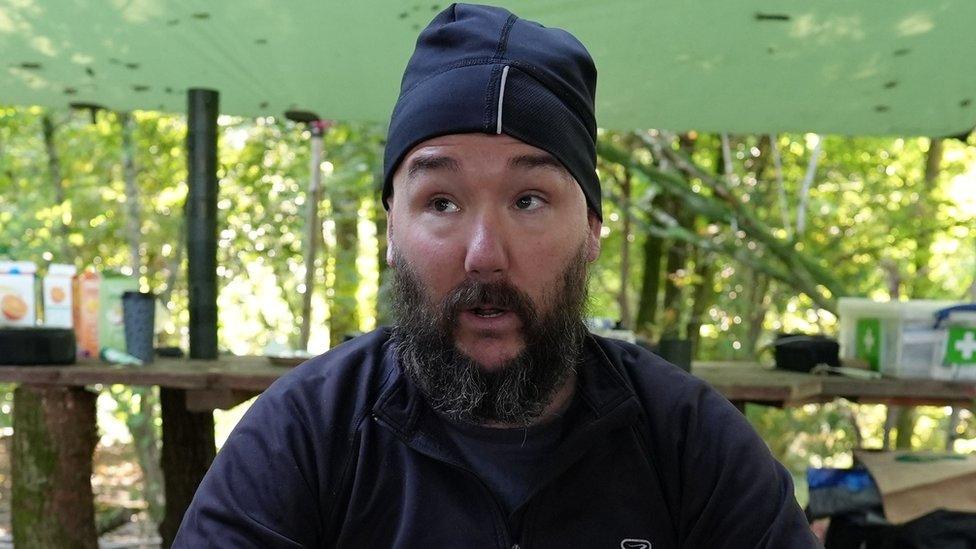
Dave Cartwright said he had smiled more over the weekend than he had in weeks
In the past five years the programme has helped more than 200 veterans.
It is free to attend and is funded by grants and private donations.
Mr Goldsmith said people came onto the course with their "head in their shoulders, struggling with life and feeling very alone".
He said he saw them leaving the woodland "head held high, smiling, laughing - they're pretty much using the programme as a handrail".
On its website, the Woodland Warrior Programme is careful to avoid any claim as an alternative to established therapies.
However, 95 per cent of people who responded to his user survey said they had experienced an improvement in their wellbeing after attending the workshop.
There is growing evidence , externalof the positive impact of nature-based therapies for veterans with PTSD.
For Ms Furlong, Dr Ajagun-Roberts and the others, the fireside chats, sleeping under the stars, and the sitting on hard benches whittling wood did appear to work.
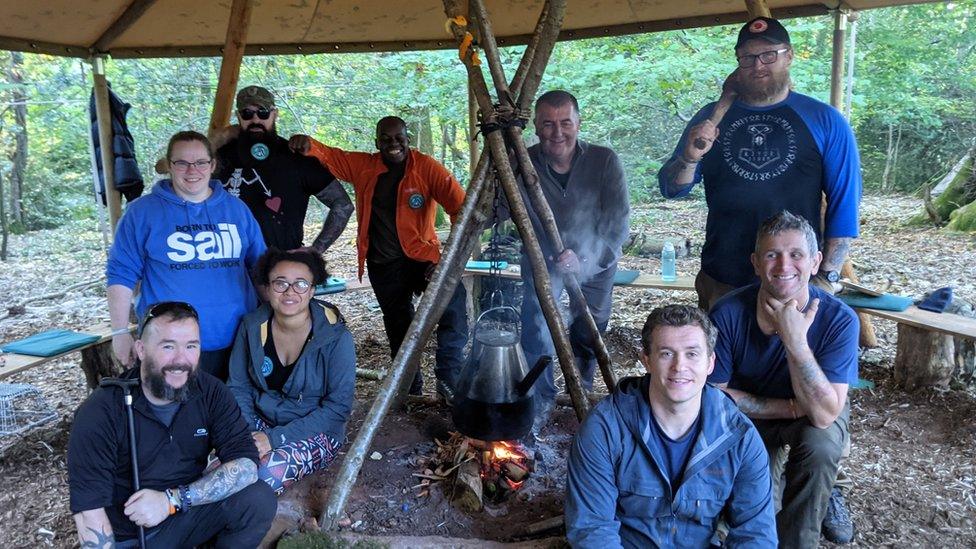
The Woodland Warrior Programme team pose for a team photo after completing the programme
By their own admission, being around others who were prepared to listen to their problems, as well as talk about their own, has paid dividends.
For Ms Furlong, a break from what she described as "the constant noise of life'", and the realisation that this was something she could have more of, was enough.
Mr Cartwright said the weekend had had a "profound effect".
"I don't think I've smiled as much in the past few weeks as I have this weekend," he said.
The weekend concluded with a team photo moment, the distribution of cloth patches and an invitation to join a private social media group.
Mr Goldsmith said: "That is where the real therapy begins."
You can watch the full episode of We Are England at 19:30 GMT on Wednesday 26 January on BBC One in the West, South West and Channel Islands or it will be available on iPlayer for a year.
- Published25 May 2021
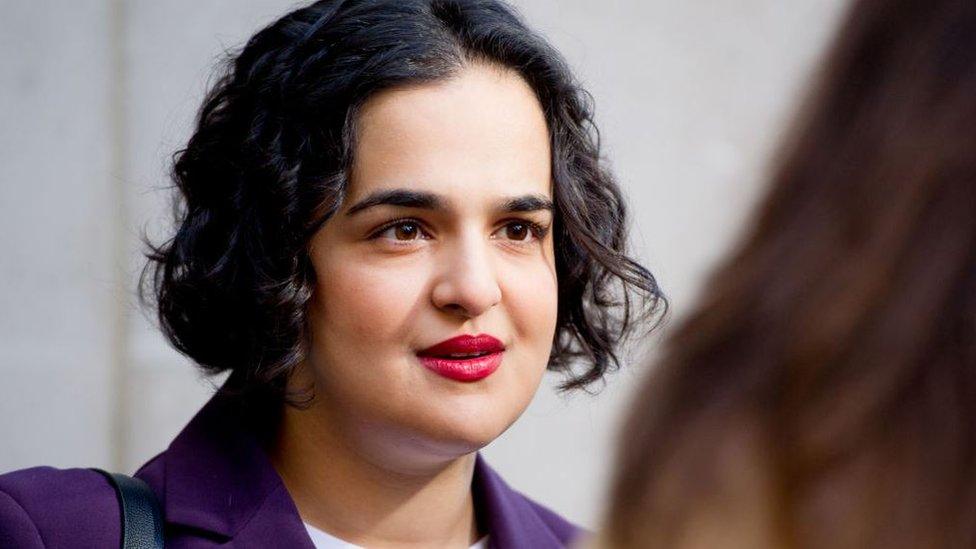
- Published22 February 2021
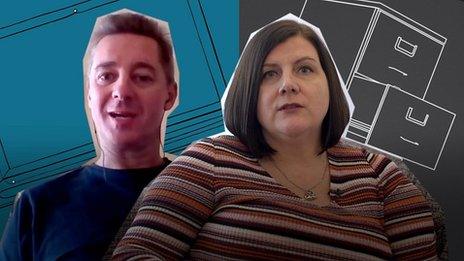
- Published23 May 2020
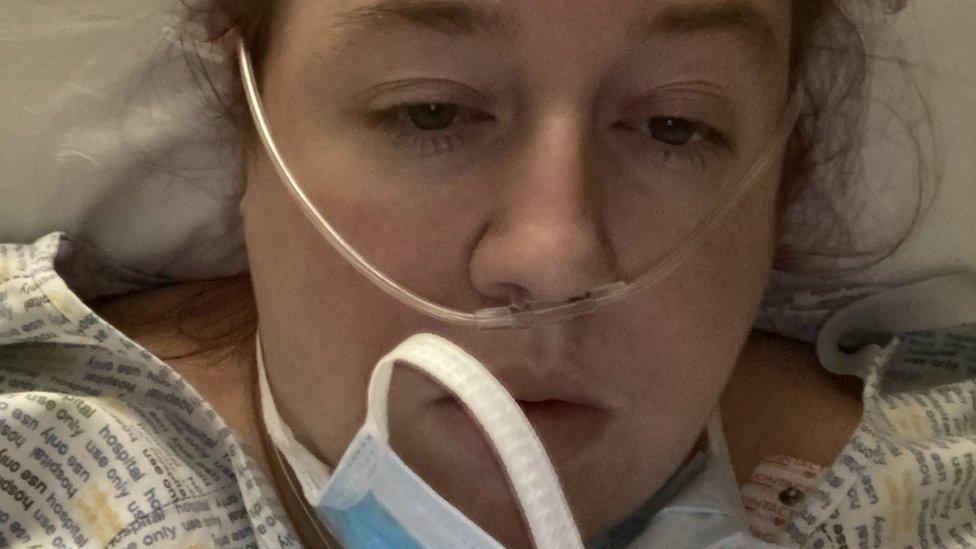
- Published17 January 2020
